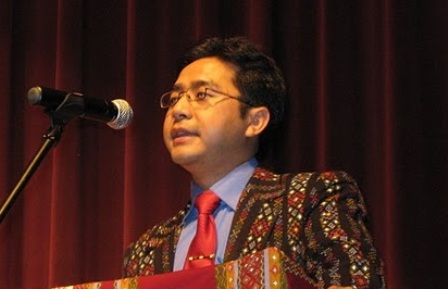The UN and Burma: the UN Good Offices Mission May Need Alteration
The UN Chief Ban Ki-moon, while on his visit to Thailand in December 2007 using his good offices mission prestige and the weight of the world community he represents, warned Burma that the return to the status quo is not acceptable. His special envoy Ibrahim Gambari has been to the country three times to help it move forward from the status quo to a real democratic reform in Burma after September saffron revolution. So far it achieves nothing.
Read More
The United Nations Secretary General should reconsider its ‘good offices mission’ mandate on Burma if it continues to fail to help Burma move forward to a real democracy, formulating the possiblity of pushing for the Security Council action.
In January 2007 when China and Russia vetoed a resolution on Burma at the UN Security Council, they gave two technical reasons: (i) Burma issue is not a threat to regional security and stability, and (ii) The UN Secretary General good offices mission has its mandate on this issue. If the UNSC takes up on this issue, that will directly undermine the good offices mission efforts.
In contrast, the problem in Burma is continuing to be a threat to regional peace and stability for the fact that thousands of Burmese refugees are fleeing to neighboring countries causing chaos and instability in the entire region. In recent years, there have been reports narrating that those groups having a close connection with the Burmese generals have been engaged in human trafficking and drugs smuggling activities which invite a serious international attentions and concerns. The cruel atrocities committed by the Burmese regime are well documented.
Thus far, Burma’s military rulers have rejected the UN good offices mission offer of sending an independent observation team to constitutional referendum on May 10. Despite the western governments have rightly dismissed this move as a blueprint for the generals keeping their grip on power, the generals are clever enough to understand that the international community can do virtually nothing without UNSC binding resolution.
Understanding there is no credibility and inclusiveness in the constitutional drafting process, the people in Burma have clearly indicated that they are overwhelmingly casting a “No Vote” at the military backed constitutional Referendum in coming May. But the military junta is using all possible means threatening and forcing people to approve their charter. This kind of actions are only redoubling concerns about the freedom and fairness of both polls, and drafting, deliberating and ratifying the constitutional process as a whole.
Probably this is the best last chance for the United Nations Chief to show that its good offices mission can help the people of Burma by pushing itself to monitor the Referendum in May and general election in 2010. Therefore, the Secretary-General Ban Ki-moon should fully exercise the good offices mission mandate to implement it. It may use the threat of UN Security Council action if need arises. However, if the good offices continues to fail at this point, it should consider resigning from its mission completely and hand the full mandate over to the UN Security Council.
Such move will pave the way for the Council to fully take over Burma agenda. That will be followed by introducing and implementing binding resolutions on Burma issue and then take the subsequent actions accordingly. This may best help a real democratic reform and national reconciliation in Burma.
By Salai Laini
Chinland Guardian
April 23, 2008





